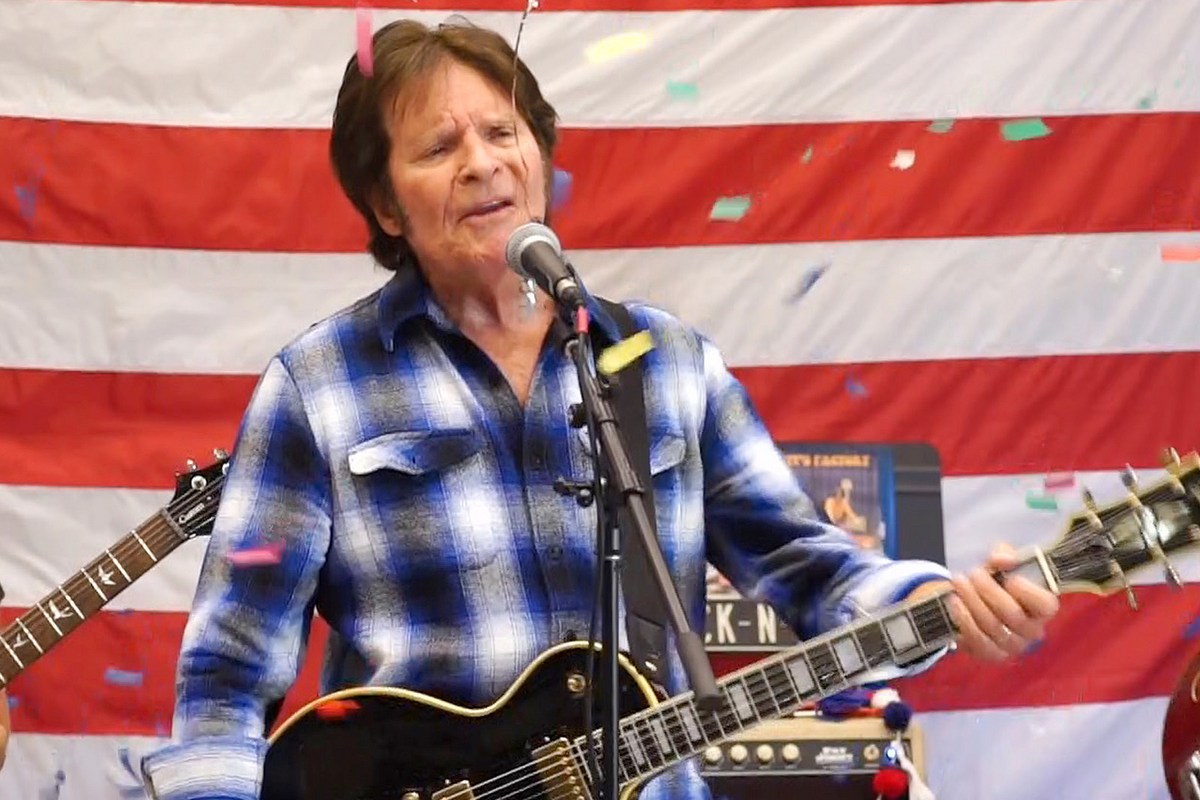
When truth feels bruised and the heart refuses to stay quiet, this song draws a hard line: enough is enough.
If you’re looking for where John Fogerty placed his anger plainly on the table—without metaphor, without polite distance—“I Can’t Take It No More” is one of his most direct statements. It’s not from the 1980s comeback era at all; it arrives much later, as the 10th track on Revival, released October 2, 2007. And unlike many titles people assume were singles, “I Can’t Take It No More” wasn’t the radio spearhead of the project; “Don’t You Wish It Was True” is widely noted as the album’s first single.
What did make a splash on arrival was the album itself. Revival debuted at No. 14 on the US Billboard 200, with reports of about 65,000 copies sold in its first week—Fogerty’s strongest showing for an album of new material in decades. That momentum wasn’t confined to America. The record climbed to No. 5 in Sweden and No. 6 in Norway, and it also reached the UK chart (with a listed peak of No. 54 on the Official Charts Company’s artist page).
But “I Can’t Take It No More” isn’t about chart ambition. It’s a burst of protest—brief, biting, and intentionally unvarnished. Even on paper, the lyrics don’t try to be “timeless.” They plant their feet in the specifics of the 2000s: casualties, WMDs, detainees, and that grinding, official language of endurance—“staying the course.” And then Fogerty twists the knife with a line that echoes through his own history: “Another fortunate son.” In a few words, he ties the Iraq era back to the class-and-war anger that powered Creedence Clearwater Revival’s “Fortunate Son” decades earlier.
What makes the song hit hard isn’t complexity—it’s the lack of it. Fogerty doesn’t write like a columnist here; he writes like someone who’s watched the same tragedy repeat itself until the spirit gets tired. The title phrase—“I can’t take it no more”—isn’t dressed up as poetry. It’s the sentence people say in kitchens late at night, when the news has become a loop of grief and contradiction, and the body can’t hold one more excuse.
Placed inside Revival, the track functions like a sudden cold wind through an open door. Much of the album is rooted in earthy rock and Americana confidence, yet this moment is a clenched fist: short, fast, and meant to be unmistakable. There’s a certain craft in that choice. Fogerty doesn’t linger; he strikes. The song’s brevity feels deliberate, as if he’s saying, I shouldn’t have to explain this for four minutes. You already know.
And if there’s a “behind-the-song” truth worth holding close, it’s this: Fogerty has always been at his most believable when he’s sounding the alarm—whether the target is war, power, or the way ordinary lives get spent by people who never pay the bill themselves. His later-life interviews and profiles still circle those long battles—control, ownership, betrayal, the feeling of being cornered by forces bigger than the individual. That lifetime of friction gives weight to a song like this; the voice isn’t borrowed outrage, it’s a man who’s learned what it costs to stay silent.
So, no—“I Can’t Take It No More” isn’t a chart-topping classic. It’s something more intimate and, in its own way, more unsettling: a moral flinch captured on tape, a moment when a beloved American songwriter stops smoothing the edges and speaks as if history is happening right now—because, for him, it was.